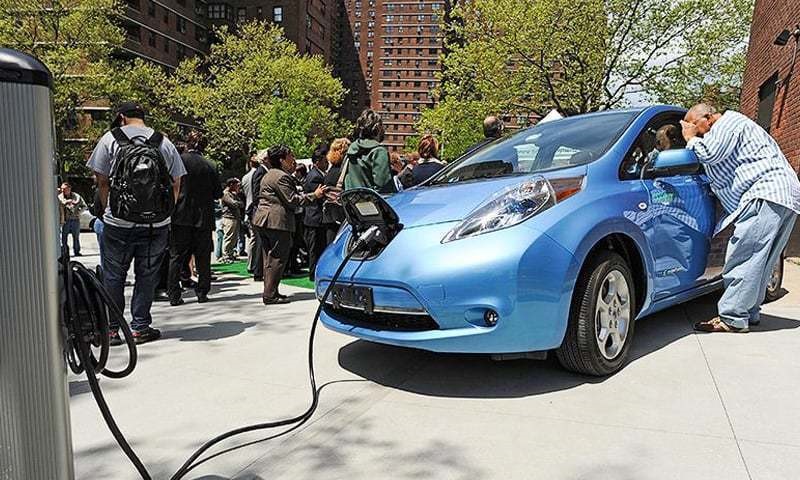During the launch of BYD’s new venture in Pakistan, Finance Minister Muhammad Aurangzeb announced a strategic plan aimed at achieving economic stability through private sector investments, export-oriented growth, and foreign direct investment (FDI). BYD, a leading Chinese electric vehicle (EV) manufacturer, has partnered with Mega Motor Company—a division of Hubco, Pakistan’s first Independent Power Producer—to establish a factory in Karachi.
The decision to set up a plant in Pakistan is notable. It reflects either the success of Pakistani stakeholders in attracting foreign investment or BYD’s assessment that local factors such as a dynamic market, lower labor costs, or tax benefits could reduce manufacturing expenses and enhance the competitiveness of its EVs both domestically and internationally.
BYD’s decision may also be influenced by Pakistan’s GSP Plus status with the European Union (EU), which was granted in 2014 following the catastrophic floods of August 2013. The EU’s GSP Plus scheme, which was evaluated in a November 2023 report, provides Pakistan with zero-rated or preferential tariffs on nearly 66% of tariff lines, thus boosting its export potential to the EU. The report acknowledged progress in Pakistan’s legislative framework but highlighted the need for better practical implementation.
It remains unclear if BYD’s Pakistani-made EVs will qualify for these preferential tariffs. Earlier this year, the European Commission imposed steep tariffs on EVs, though companies that cooperated with EU anti-subsidy measures faced a lower tariff increase of 17.4%, in addition to the existing 10%. BYD, facing the lowest hike of 17.4%, has yet to disclose any potential price adjustments for its EVs in the EU.
BYD is not new to international expansion; it opened a factory in Thailand in July 2024, its first outside China, with a $450 million investment aimed at exporting to ASEAN countries. The Thai plant is part of a broader $1.44 billion investment in the region, supported by subsidies and tax incentives. BYD has also planned manufacturing ventures in Hungary, Turkey, and Brazil.

At the launch event in Lahore, BYD General Manager for Asia Pacific, Xueliang, emphasized that the company’s entry into Pakistan is not just about offering advanced vehicles but also about promoting environmental responsibility and technological innovation. BYD plans to open three flagship stores and experience centers in Pakistan and to introduce two SUV models and a sedan between October and December 2024.
Hubco’s CEO highlighted the significance of BYD’s investment, noting that the plant will commence operations in 2026. This will mark the establishment of Pakistan’s first dedicated EV manufacturing plant. Details on the level of foreign direct investment, local and foreign equity, or applicable taxes have not yet been disclosed.
Currently, Pakistan has only eight electric vehicle charging stations—three in Islamabad, two in Lahore, and one each in Karachi, Hafizabad, and Sargodha. Hubco has pledged to set up fast charging stations in major cities and along major highways. However, the power sector in Pakistan faces significant challenges, including high tariffs and a circular energy debt of 2.4 trillion rupees, which impacts the cost and reliability of electricity.
The energy sector issues are compounded by firm contracts with 2015 Independent Power Producers (IPPs), mainly Chinese firms, which involve capacity payments. These contracts contribute to higher electricity costs and hinder efforts to transition to cheaper renewable energy sources.
Current energy reforms have focused on shutting off electricity to areas with high arrears, providing untargeted subsidies to low-consumption households, and considering privatization without adequate evaluation of past performance. There is a need for comprehensive reform in the energy sector, including abandoning tariff equalization policies and ensuring fair practices after the sale of distribution companies.
In conclusion, it is crucial that the Law Ministry, Federal Board of Revenue (FBR), and Finance Ministry carefully review the agreement with BYD to avoid repeating past mistakes with IPP contracts and to ensure that the public does not bear an undue burden in the future.
